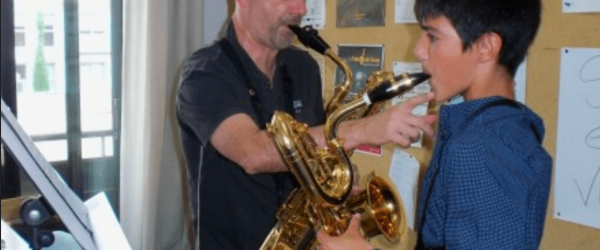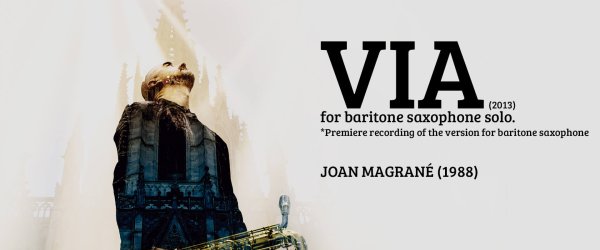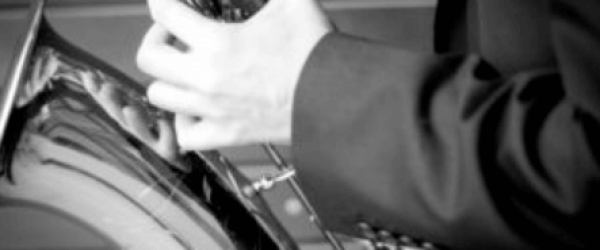
Do you know that improvisation has always been a common practice among many performers in the history of music.
Usually, improvisation is so often associated with jazz that seems that have nothing to do with “classical” (or written) music. However, improvisation has always been a common practice among many performers in the history of music. Even, composers as Beethoven, Bruckner or Buxtehude were renowned improvisers in their time.
Free improvisation was born as a liberation against the “tyranny” of the score imposed by some integral serialism composers in the 1960s in which many works almost sounded like improvisations. At the same time, the first free jazz musicians appeared and “revolutioned” the scene of this genre with improvisations often far from the standards.
After going to many concerts of great musicians (Agustí Fernandez, Lê Quan Ninh or Josep Lluís Galiana, among others) in Barcelona in the last years, I realized that free improvisation, free jazz and contemporary music have more common elements than different ones. It is amazing to listen the great amount and variety of sounds produced from their instruments, the search for timbres and sound textures or the development of music structures.
My background as an improviser.
I did my musical studies as a “reader” performer. Over the years, I have found some repertoire where some improvisation is more and more required. According to the composer, you can choose the order of some excerpts, you can improvise in a range of notes, you can “do something with this note” (I love this indication), etc. Other composers write open (or free) sections in their works or compose pieces with indications (even no music notation, sometimes) in order to let you express freely.
Anyway, improvisation (more or less limited, guided of free) is a fantastic tool for me. I consolidate my technical skills and, at the same time, improve my performing creativity. Many times, I finish my study sessions by creating ephemeral pieces upon an extended technique or a sound. Have you ever tried it?
Watch this improvisation we, Kyle Motl (double-bass), Joan Bagés, Bernardo Barros (electronics), Fede Cámara Halac (live electronics and video), did in New York in June 2017:
Although I improvise sometimes, I don’t consider an improviser myself. There are lot of excellent performers specialized in improvisation from whom we have much to learn.
Improvisation in the classroom.
I became interested in free improvisation by the influence of a conservatory mate, percussionist Núria Andorrà. Núria is a very active improviser. She has performed with some of the best free improvisation musicians who have played in Barcelona in recent years. Núria encouraged me to work on all kind of improvisations (free, sound-painting, etc.) with my saxophone students and I have to tell you that it is very useful. Improvisation gives me very good results as a complement to their skills and increases their active listening and creativity. Furthermore, its practice allows me to join students of different levels.
I often propose my students of the conservatory, or when I do workshops, to include a free or guided improvisation in our concerts. When we start a concert with an improvisation, students feel relaxed and concentrated at the same time from the very beginning. In addition, if we work a cool mise-en-scene, we captivate the audience very quickly. Try it!
Here they are some examples of improvisations with students:
- The saxophone ensemble of the Music Conservatory of Reus (intermediate students) at “Festival Simfònic” (Reus). June, 2014
- Students (all levels) of the NZ Classical Saxophone Summer School in Taranaki (New Zealand). January, 2017
To finish, let me recommend these interesting books:
- BAILEY, D. (1992). Improvisation. Its Nature and Practice in Music. The British Library National Sound Archive.
- GALIANA, J.- L. (2024). La libre improvisación musical. Fuente inagotable de inteligencia emocional. Edictoràlia.
- STEVENS, J. (2007). Search & Reflect. Rockschool
What do you think about improvisation? Do you consider it as a useful tool for your own working sessions? Would you include it in your lessons or concerts?
—
Have you found this post interesting? Subscribe to my newsletter to receive other posts about the baritone saxophone.
Joan Martí-Frasquier
Barcelona, March 2017
Last update: April 2024





